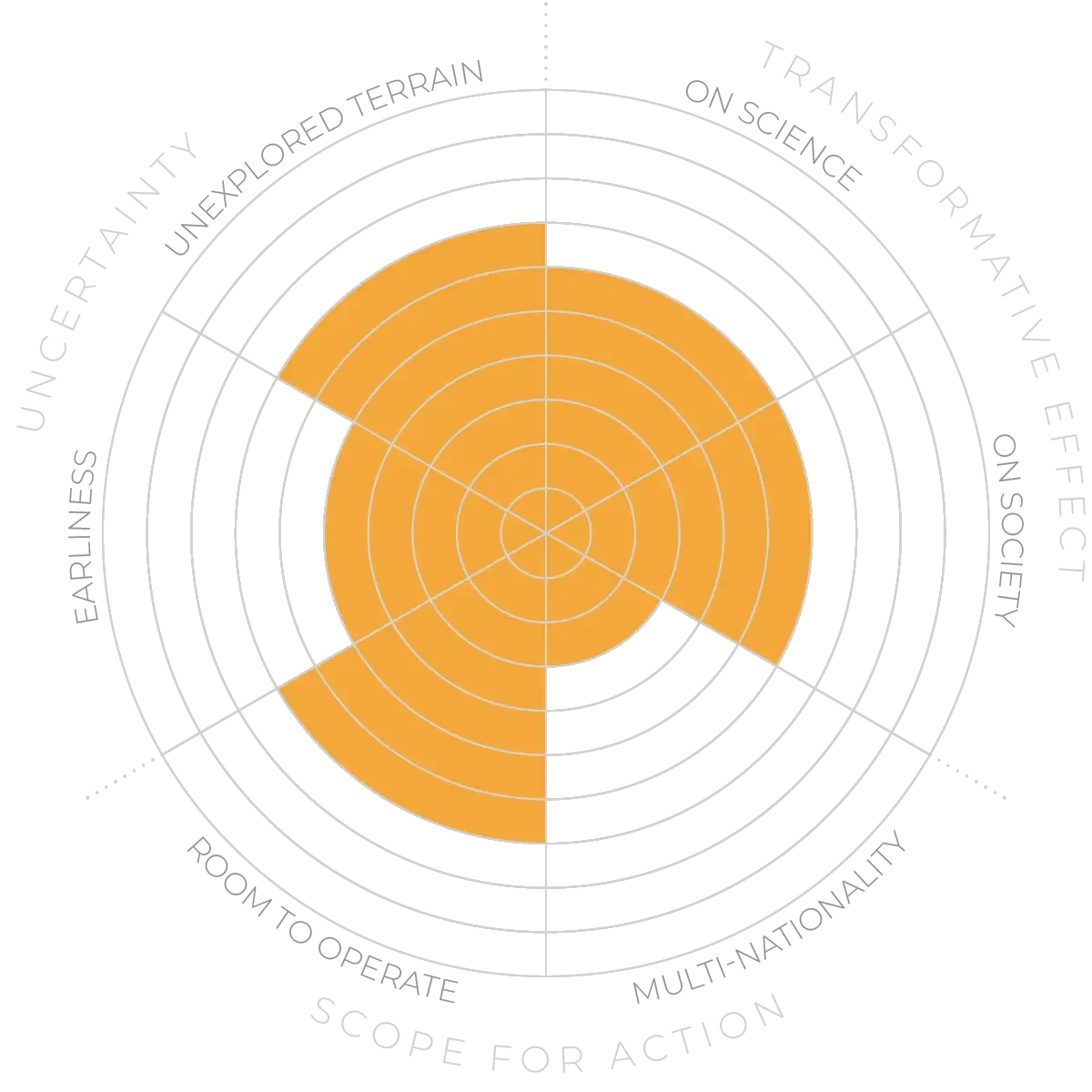Future Horizons:
10-yearhorizon
Stakeholders battle over reputation and trust
25-yearhorizon
AI oversees data veracity
In any society, business or network, the ability to evaluate and then trust partners is a crucial component of co-operation.17 Applying trust modelling to the networks of actors at work in the diplomatic landscape has the potential to better model potential outcomes of discussions, votes and negotiations.
This work comes at a time when the role of trust in broader society has been thrown into sharp focus by the phenomenon of fake news, manipulated images and deepfake videos. The diplomatic landscape is powerfully shaped by the information that flows through it, and false and misleading information has huge disruptive potential.
A key emerging issue is the role of artificial intelligence and how it will be used to inform cooperative decision-making. At the heart of this question is whether AI systems will become better at interpreting the complex data fed into them or worse as AI-generated data distorts their view of the world. The possibility that AI systems could create a kind of artificial truth will be an important issue for the field.
Trust and Co-operation Modelling - Anticipation Scores
The Anticipation Potential of a research field is determined by the capacity for impactful action in the present, considering possible future transformative breakthroughs in a field over a 25-year outlook. A field with a high Anticipation Potential, therefore, combines the potential range of future transformative possibilities engendered by a research area with a wide field of opportunities for action in the present. We asked researchers in the field to anticipate:
- The uncertainty related to future science breakthroughs in the field
- The transformative effect anticipated breakthroughs may have on research and society
- The scope for action in the present in relation to anticipated breakthroughs.
This chart represents a summary of their responses to each of these elements, which when combined, provide the Anticipation Potential for the topic. See methodology for more information.



